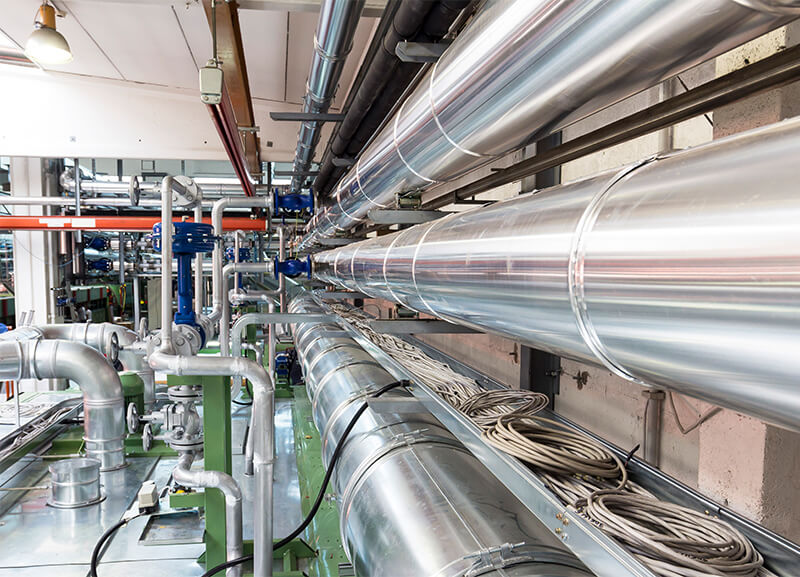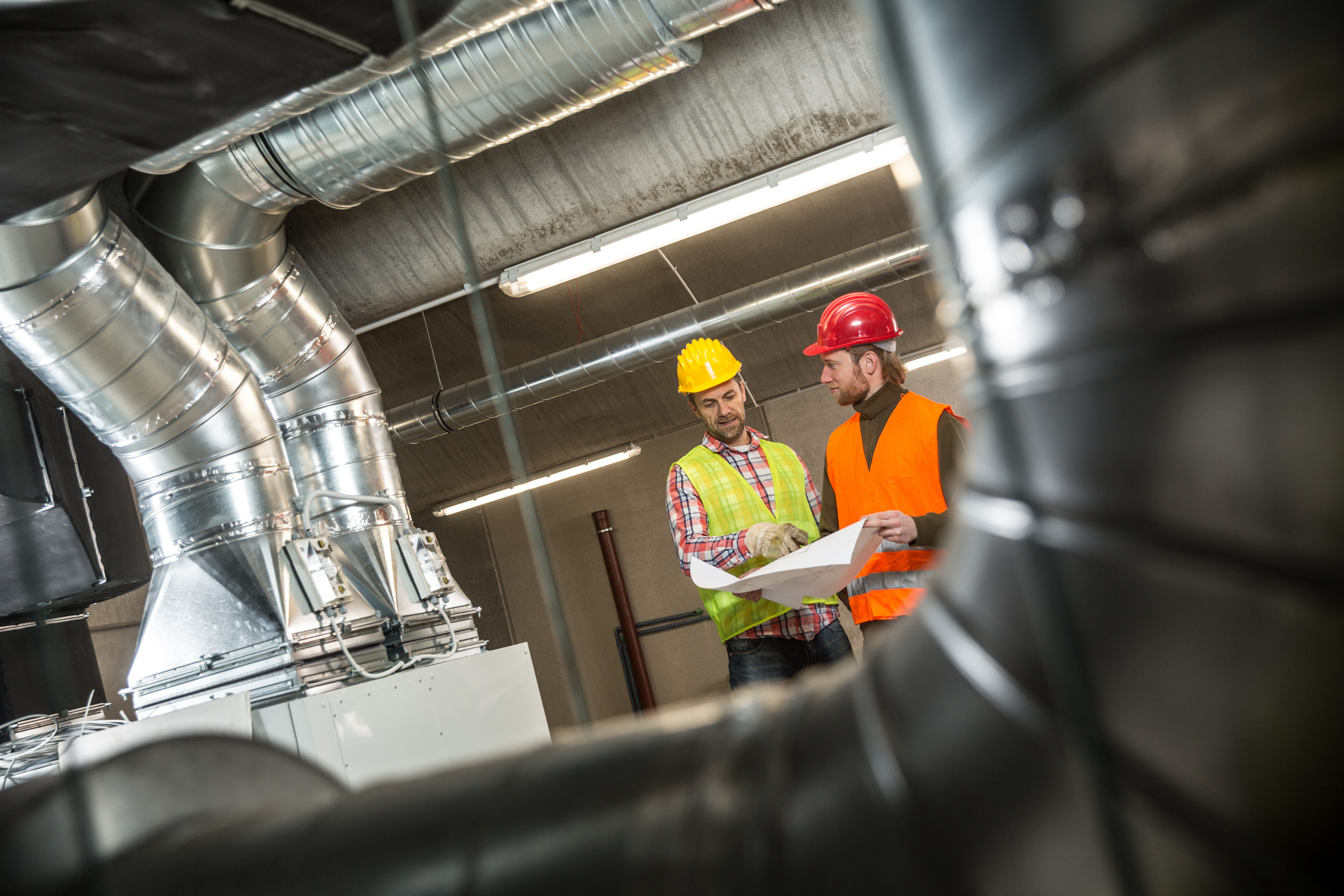See how HVAC experts improve home value with proper care
Wiki Article
Exploring the Crucial Parts of a Reliable Heating And Cooling System
A reliable cooling and heating system is improved a number of crucial elements that function in harmony. Each component, from the thermostat to the ductwork, plays an important function in maintaining comfort and energy efficiency. Recognizing these aspects is important for optimizing performance and improving indoor air quality. As one checks out these elements, the detailed connections between them disclose insights into enhancing overall system efficiency. What particular factors contribute most to this efficiency?The Role of the Thermostat in Cooling And Heating Efficiency

Although frequently ignored, the thermostat plays a vital duty in the performance of a/c systems. HVAC experts. This little device functions as the primary nerve center, managing temperature level setups and guaranteeing optimal convenience within a room. By accurately sensing the ambient temperature, the thermostat interacts with the air, air flow, and home heating conditioning systems to maintain the preferred environment
A reliable thermostat minimizes energy usage by turning on the HVAC system only when required, therefore avoiding too much home heating or air conditioning. Modern programmable and clever thermostats enhance this performance even more by permitting users to set routines and from another location change setups, adjusting to daily regimens.
Furthermore, the positioning of the thermostat is essential; incorrect place can bring about unreliable temperature readings, leading to inefficient procedure. Generally, a well-functioning thermostat not only boosts comfort yet also contributes considerably to power financial savings and the longevity of the cooling and heating system.
Recognizing the Value of Air Filters
Air filters offer a vital feature in heating and cooling systems by guaranteeing that the air distributing within a room stays healthy and balanced and clean. These filters trap dust, allergens, and other pollutants, avoiding them from being recirculated throughout the setting. By capturing these bits, air filters contribute to boosted interior air top quality, which can greatly benefit owners' wellness, particularly those with allergies or respiratory conditions.In addition, preserving tidy air filters improves the efficiency of cooling and heating systems. Clogged filters can limit airflow, triggering the system to work tougher to preserve preferred temperatures, leading to enhanced energy consumption and higher energy bills. Consistently changing or cleaning up filters is a vital upkeep action that can lengthen the lifespan of HVAC equipment. Eventually, comprehending the value of air filters allows house owners and structure managers to take aggressive measures to ensure a well-functioning, efficient cooling and heating system that advertises a safe and comfortable interior atmosphere.

The Capability of the Heater and Heat Pump
Furnaces and heatpump are essential components of a/c systems, in charge of providing heat during chillier months. Heating systems operate by home heating air with combustion or electric resistance, then dispersing it throughout the home through air ducts. They usually supply fast heating and can be sustained by natural gas, electricity, or oil, depending on the system kind.Conversely, warmth pumps move heat instead of generate it. They extract warm from the outdoors air or ground, also in reduced temperatures, and transfer it inside. HVAC experts. This double functionality permits warmth pumps to additionally offer cooling in warmer months, making them functional choices for year-round environment control
Both systems need proper maintenance to assure efficiency and longevity. While furnaces succeed in extreme chilly, heatpump can be beneficial in modest climates. Comprehending their distinctive performances help property owners in selecting the most appropriate option for their home heating requires.
Checking Out the Cooling Device
The air conditioning unit is an important element of cooling and heating systems, available in numerous kinds to fit various requirements. Comprehending the efficiency scores of these systems is essential for making notified choices about power usage and price. This section will certainly explore the varied kinds of air conditioning system and clarify how efficiency ratings influence performance.Sorts Of Air Conditioners
While numerous factors affect the selection of air conditioning systems, understanding the different types readily available is important for property owners and building managers alike. Central air conditioning conditioners are designed to cool whole homes or buildings, utilizing a network of air ducts for air movement. Home window systems use a more localized service, suitable for single spaces or little spaces. Portable air conditioners give versatility, allowing users to relocate the device as needed. Ductless mini-split systems are another choice, integrating the effectiveness of central systems with the convenience of zoning, as they call for no ductwork. Geothermal systems harness the planet's temperature level for energy-efficient cooling. Each type comes with distinct advantages, making informed options vital for reliable environment control.
Effectiveness Ratings Clarified
Recognizing efficiency scores is essential for selecting the right cooling device, as these metrics give understanding into the system's performance and energy usage. The most typical ranking for ac unit is the Seasonal Power Effectiveness Proportion (SEER), which determines the cooling output throughout a common air conditioning season split by the overall electric power input. A higher SEER shows much better efficiency. In addition, the Energy Performance Proportion (EER) is used for determining efficiency under certain problems. Another vital metric is the Energy Celebrity accreditation, which symbolizes that a system meets strict power effectiveness guidelines. By evaluating these rankings, consumers can make enlightened choices that not only optimize comfort but likewise lower energy prices and ecological effect.The Importance of Ductwork and Air flow
Reliable ductwork layout and air flow administration play important roles in the total effectiveness and performance of a/c systems. Appropriate ductwork guarantees that conditioned air is distributed uniformly throughout a room, decreasing temperature variations and enhancing comfort. Well-designed air ducts reduce resistance to air movement, reducing the workload on a/c tools and eventually lowering energy intake.look at these guys Airflow management includes tactically putting vents and signs up to boost the flow of air. This avoids common concerns such as hot or chilly areas, which can happen when air movement is blocked or improperly balanced. Additionally, the best duct products and insulation can better improve effectiveness by minimizing warmth loss or gain during air transportation.
A reliable ductwork system not only adds to energy cost savings however can additionally prolong the lifespan of HVAC equipment by decreasing unnecessary strain (HVAC experts). Understanding the value of ductwork and air flow is vital for accomplishing peak Heating and cooling system efficiency.
Routine Maintenance Practices to Boost Efficiency
Regular upkeep techniques are vital for guaranteeing peak efficiency of heating and cooling systems. These practices consist of routine inspections, cleaning, and necessary repair services to keep the system running successfully. Frequently changing air filters is essential, as clogged up filters can obstruct airflow and decrease efficiency. On top of that, specialists should examine and clean evaporator and condenser coils to avoid overheating and power wastefulness.Yearly professional inspections are also suggested, as qualified technicians can determine possible issues before they escalate. Lubricating moving parts lessens deterioration, adding to a longer life expectancy for the system. Making sure that the thermostat operates properly help in keeping optimal temperature level control.
Regularly Asked Concerns
Just how Frequently Should I Change My Thermostat?
Thermostats must typically be image source changed every 5 to 10 years, depending upon use and technology advancements. Routine checks are a good idea to assure peak performance, especially if experiencing irregular temperature control or enhanced power prices.What Dimension Air Filter Is Finest for My Cooling And Heating System?
The most effective size air filter for an a/c system differs by unit style. Typically, it's important to get in touch with the proprietor's guidebook or examine the existing filter measurements to guarantee peak performance and air top quality.Can I Mount a Heatpump Myself?
Installing a heatpump separately is possible for knowledgeable individuals, yet it requires expertise of electrical systems and regional codes. Employing an expert is advised to ensure correct installation and excellent system performance.How Do I Know if My Ductwork Is Efficient?
To determine ductwork efficiency, one need to look for leakages, measure airflow at vents, evaluate insulation top quality, and examine temperature level distinctions in between supply and return ducts. Professional analyses can supply comprehensive understandings right into general image source performance.What Are Indications My Cooling And Heating Requirements Immediate Maintenance?
Indicators that a heating and cooling system needs instant maintenance consist of unusual sounds, irregular temperatures, raised energy costs, unpleasant odors, and regular cycling. Resolving these issues immediately can avoid additional damages and assurance top system efficiency.Air filters serve a crucial function in A/c systems by ensuring that the air distributing within an area stays healthy and clean. Furthermore, keeping clean air filters enhances the performance of A/c systems. Ductless mini-split systems are one more option, combining the efficiency of main systems with the benefit of zoning, as they require no ductwork. Understanding effectiveness ratings is essential for selecting the right air conditioning system, as these metrics give insight into the system's efficiency and power usage. The best dimension air filter for a Heating and cooling system differs by system style.
Report this wiki page